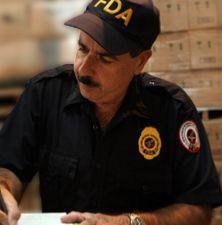
The US Food and Drug Administration (FDA) has stepped up checks on papayas arriving from Mexico after discovering a high percentage of contaminated fruits, specifically with salmonella, crossing the border.
The FDA informed importers of its actions on August 4 via the Cargo Systems Messaging Service of US Customs and Border Protection, warning them to expect supply delays as it increased the number of microbiological tests carried out on consignments.
“Recent analytical results of samples of Mexican papayas indicate an elevated number of microbiological contamination violations, specifically salmonella violations,” the FDA said in its message.
“These findings have led FDA to issue guidance to our field officers for an immediate increase in surveillance sampling of Mexican papayas. We are taking these measures to provide better protection to US consumers of these products. FDA will adjust our surveillance guidance as indicated by the results of this increased sampling.”
This tighter surveillance is part of an on-going FDA investigation into salmonella in Mexican papayas launched in late July after importer Agromod Produce voluntarily recalled all Blondie, Yaya, Mañanita and Tastylicious brand papayas sold before July 23 because of possible contamination.
The FDA found the salmonella strain in two papaya samples collected at Agromod and in Agromod-bound papayas stopped at the border.
Days later, fresh-cut supplier GHSW, in Houston, voluntarily recalled six of its products after learning that they possibly contained the Agromod recalled papaya. Agromod stopped distribution to help the FDA with its investigations.
As of July 27, 99 cases of the papaya-related salmonella strain had been reported in 23 states, according to the Centers for Disease control. The outbreak began in January. Ten people had been admitted to hospital.



